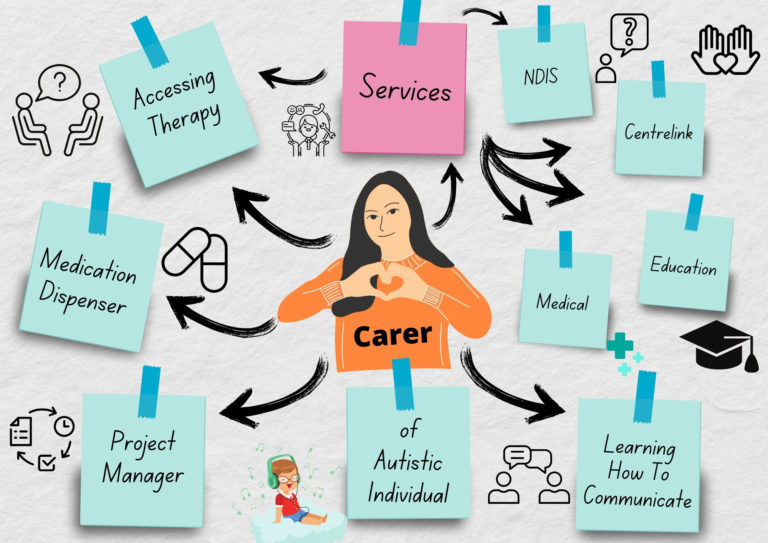
A carer is someone who provides unpaid assistance, support and care for individuals who are unable to fully care for themselves. They can be parents, children, sisters, brothers, friends, guardians – anyone who plays a role in supporting someone with their daily living activities and overall wellbeing. Current statistics say that one in nine people in Australia are carers. Carers save the government billions of dollars every year by providing unpaid support to someone who requires more support than normal. Your caring journey can be for a long time, a short time or episodic.
Research is showing us that prioritising carers’ health and wellbeing is really important and needs to be a focus. Risk of poor emotional, social and physical health are at much higher rates with carers than other cohorts in the community. The impact on financial status cannot be undersold. Fifty per cent of carers provide 20-40 or more hours of unpaid care per week (Furnival and Cullen 2022; Hung et al. 2013).
Different Journeys places a huge priority on supporting carers:




Many carers are unaware of the wide range of community supports and services available to them. Many other carers feel unworthy, or unable to access the supports and services they need.
Different Journeys is currently funded to support carers and parents of autistic individuals. We create non-judgemental spaces, either online or face to face, for carers of all ages to link with other carers in similar circumstances. We replace isolation and judgement with a supportive community.
At Different Journeys we raise awareness of the misunderstood and hidden challenges of caring for autistic people. Our carer education, information and celebration events provide inclusive, safe and supportive environments in which to provide both peer-based and professional supports.
Our individualised, wrap-around peer support programs aim to decrease the prevalence of mental illness and social isolation in the carer community. Through an empowerment model, our work extends to supporting carers and employers to enhance carers’ employment and education opportunities.
“Through our ‘one-on-one’ carer peer support program*, we walk alongside carers to enable them to navigate a complicated support system, empower them to take up opportunities and engage with other carer families in similar situations. We acknowledge that no two journeys are the same and there is no set formula. We are not a crisis service but rather you will get support from another carer who has walked the journey.” – Mel Spencer, OAM, Co-Founder and CEO
* Please note, Different Journeys’ current funding covers provision of services in Victoria.



There are lots of ways to try to look for supports. The first and most obvious place to start is through the National Carer Gateway or Carers Australia which can direct you to the state and territory peak bodies for carers. At Different Journeys we believe the best place for carer support is to go to someone who understands your journey, someone who is walking (not the same) but a similar journey. Through the wisdom and advice of other carers we have found the best sources of information.
Working carers have the same leave entitlements as all other employees. They can also have extra rights to request flexible work arrangements and accommodations to help them support the disabled people in their lives. When a carer's personal leave is used up, carers can still get extra unpaid leave whenever they need, and their employer may not ever punish them for this.
Find out more at the Fair Work Ombudsman's website.
Send us a message and we will get back to you with details as soon as we can.
Different Journeys would like to acknowledge the traditional owners of the different lands on which we meet today. We respect all Aboriginal Elders past and present We aim to collaborate with our Aboriginal and/or Torres Strait Islander friends in the autistic community to connect, empower and support each other and exchange isolation, prejudice and ignorance with connections, hope and community. We acknowledge that the connection to autism and lived experience is our common ground. We acknowledge, respect and maintain that our custodians have cultivated these lands and we continue to learn together.